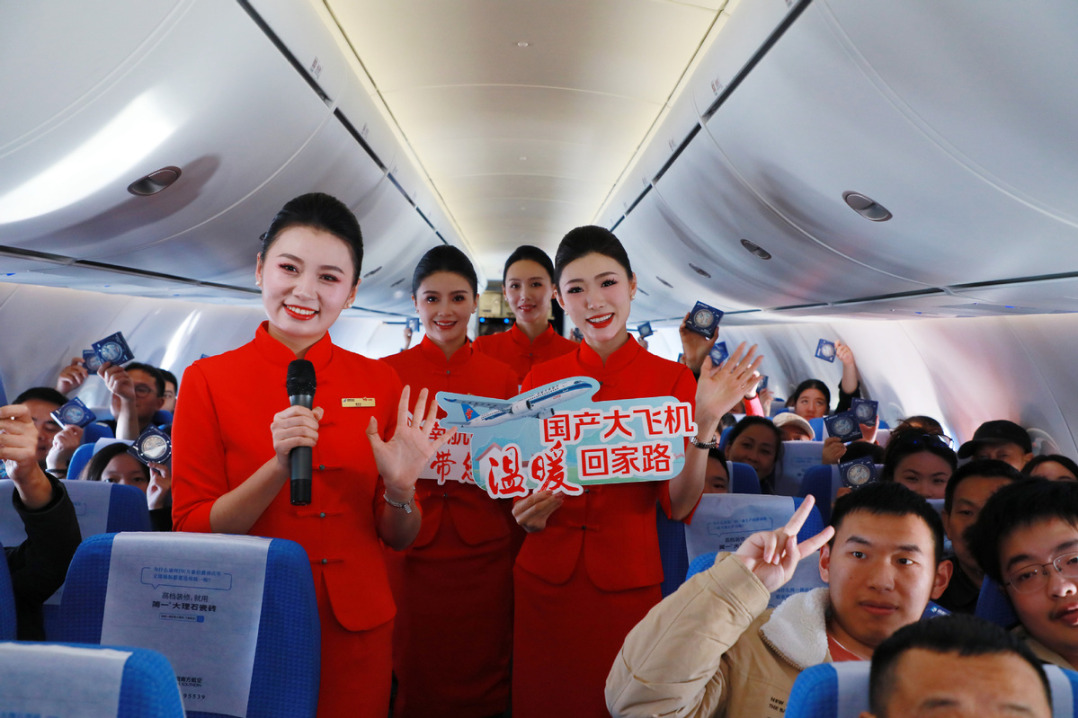Nation riding tide of changes in world order


China expected to play bigger role in global governance, multilateral system
Editor’s note: Xi Jinping Thought on Diplomacy is the fundamental guideline for China’s diplomatic work in the new era. China Daily is publishing a series of stories to examine how Xi’s proposals have become internationally accepted and made great contributions to world peace and human progress.
The world is facing challenges arising from the weakening role of international law and global governance. The United Nations is now "at a hard time" as its functions are being crippled. China can play a bigger part in strengthening the role of the international body.
These are key points Kazakh President Kassym-Jomart Tokayev made in a speech at the Chinese Academy of Social Sciences in Beijing when he paid his first state visit to China last month.
Tokayev voiced his concerns over the current international situation, which, as was described by President Xi Jinping on many occasions, is undergoing profound and complex changes not seen in a century.
Xi said at the Central Conference on Work Relating to Foreign Affairs in June last year that the world is undergoing the most profound and unprecedented changes in a century.
One month later, Xi told business leaders at the BRICS Business Forum held in Johannesburg, South Africa, that the next decade will see faster changes in the international landscape and the international alignment of forces as well as a profound reshaping of the global governance system.
This is because a new round of revolution and transformation in science, technology and industries featuring artificial intelligence, big data, quantum information and biotechnology is gaining momentum, and the collective rise of emerging markets and developing countries will make global development more balanced and global peace more firmly based, Xi said at the forum.
However, he warned that, as unilateralism and protectionism are mounting, the international community has reached a new crossroads as "we are facing a choice between cooperation and confrontation, between opening-up and a closed-door policy and between mutual benefit and a beggar-thy-neighbor approach".
Xi's judgment about today's world reveals how China would respond to and guide the changes in the world pattern, said Yang Jiechi, a member of the Political Bureau of the Communist Party of China Central Committee, in a signed article in Qiushi, the flagship journal of the CPC Central Committee.
Yang, also director of the Office of the Foreign Affairs Commission of the CPC Central Committee, said in the article that China has been actively offering its wisdom and solutions to guide the reform of the global governance system amid ongoing changes.
With promoting world peace and international cooperation in mind, Xi has been endeavoring to use multilateral platforms — such as the Group of 20 Summit, APEC Leaders' Informal Meeting, the United Nations General Assembly and the World Economic Forum — to advocate China's propositions on improving global governance.
The most important vision he proposed is building a community with a shared future for mankind, which is being increasingly accepted worldwide. In February 2017, the phrase was for the first time incorporated into a UN resolution by the 55th UN Commission for Social Development.
It has also been adopted by the UN Security Council, the Human Rights Council and the First Committee of the UN General Assembly, thus turning the Chinese concept into an international consensus.
Xi made it clear on various occasions that China follows the principle of achieving shared growth through discussion and collaboration in engaging in global governance, stands for democracy in international relations, maintains that all countries — big or small, strong or weak, rich or poor — are equal, and supports developing countries having broader representation and a bigger say in international affairs.
"We are deeply involved in international cooperation on climate change, antiterrorism and upholding cybersecurity, (we) earnestly fulfill relevant international obligations and responsibilities and have made tremendous contributions to dealing with common global challenges," Yang said.
In a recent interview with Xinhua News Agency, Portuguese Communist Party General Secretary Jeronimo de Sousa spoke highly of China's defense of the UN and international law.
As some Western powers ignore and disregard the norms of international law, he stressed the importance of "action to affirm and respect the principles enshrined in the UN Charter, negotiated resolutions of international conflicts and the defense of world peace.
He said that while seeking its own development, China is actively promoting international trade and economic cooperation to develop equitable and mutually beneficial relations between the countries around the world.
During his state visit to France in March, Xi proposed the vision of global governance featuring extensive consultation, joint contribution and shared benefits at a global governance forum attended by leaders including French President Emmanuel Macron, German Chancellor Angela Merkel and European Commission President Jean-Claude Juncker.
He called for addressing the governance deficit on the principle that global affairs should be settled by the peoples of various countries through consultations, highlighting the importance of advancing the democratization of the global governance system.
Xi's propositions of the new development philosophy call for innovative, coordinated, green, open and shared economic growth. They also call for common, comprehensive, cooperative and sustainable security as part of his contributions to the theories of global governance, said Vice-Foreign Minister Le Yucheng in a recent interview with The Paper.
Actions speak louder than words when China participates in global governance, Le said, adding that China is the second-largest financial contributor to UN peacekeeping missions and is also the largest troop contributor among the five permanent members of the UN Security Council.
Belt and Road Initiative
In recent years, China intensified its concrete efforts to participate in global governance by initiating platforms for international cooperation such as the Belt and Road Initiative, the Asian Infrastructure Investment Bank and the Silk Road Fund.
By the end of August, 136 countries and 36 international organizations had signed cooperation documents with China on jointly building the Belt and Road. Since it started operations in January 2016, the AIIB has now grown to 100 approved members worldwide.
He Yafei, former vice-foreign minister and now a senior researcher at Renmin University of China's Chongyang Institute for Financial Studies, said in an article published in the Global Times that the BRI is an important part of the solutions China contributes to the world in dealing with the changing international landscape and innovating global governance.
High-quality construction of the Belt and Road will help boost new development of globalization with free trade being its foundation while strengthening the development of infrastructure facilities in developing countries, He said.
Though suffering difficulties and setbacks in recent years, the global governance process led by the UN is still ongoing. However, the voices of reform in the UN and other mechanisms of the global governance system such as the World Trade Organization are on the rise.
Pang Zhongying, an international relations professor at Ocean University of China's Institute of Marine Development, said the pullback of the United States from international organizations and treaties has weakened and even damaged the existing global governance system. However, countries including China and other emerging markets are striving to improve and consolidate the system.
The country remains committed to upholding the postwar global governance system. In the meantime, it supports necessary reforms of some mechanisms such as the WTO, Pang said.
- Beijing holds vibrant New Year celebrations at Shougang Park
- Trade between Chinese mainland, Taiwan records year-on-year increase of 9.4%
- Taiwan residents make over 4m trips to mainland in 2024, up 54.3%
- Xi Jinping's cultural footprints in 2024
- Southeast Asian mayors experience Chinese New Year traditions in Nanning
- 90 years on, Long March's legacy inspires China's progress in the new era





































